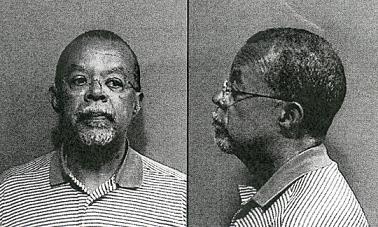Identity, Race, and the Arrest of Henry Louis Gates, Jr.

Yesterday news broke of a startling incident that raised troubling questions about racial profiling. Last Thursday, preeminent scholar and respected public intellectual Henry Louis Gates, Jr., was arrested in Cambridge, Mass., where he teaches at Harvard University and directs the W. E. B. Du Bois Institute for African and African American Research. According to the Associated Press, Gates was arrested after police responded to a call about a possible break-in:
Cambridge police say they responded to the well-maintained two-story home after a woman reported seeing “two black males with backpacks on the porch,” with one “wedging his shoulder into the door as if he was trying to force entry.”
Turns out that was Gates, who had just returned from a trip aboard, attempting to enter his own home. Reports the Boston Globe:
He was booked for disorderly conduct after “exhibiting loud and tumultuous behavior,” according to a police report. Gates accused the investigating officer of being a racist and told him he had “no idea who he was messing with,”‘ the report said.
Gates told the officer that he was being targeted because “I’m a black man in America.'”
The arrest unsettled the university’s black community, who voiced concerns about enduring prejudice on and off campus. News that charges against Gates will be dropped (the Cambridge Police Department released a statement today calling the incident “regrettable and unfortunate”) will likely do little to calm the roiling tensions.
Gates is best known for his work on African American and multicultural issues as well his commitment to black history and literature. Among his many distinguished publication, he also coedited two volumes issue by the University of Chicago Press. Race, Writing, and Difference is a classic of cultural criticism, providing a broad introduction to the idea of “race” as a meaningful category in the study of literature and the shaping of critical theory. Identities explores such topics as “Gypsies” in the Western imagination, the mobilization of the West in Chinese television, the lesbian identity and the woman’s gaze in fashion photography, and the regulation of black women’s bodies in early 20th-century urban areas, disrupting the cliché-ridden discourse of identity by exploring the formation of identities and problem of subjectivity.
As the shocking news from Cambridge reveals, race and identity are very much at the heart of Gates arrest and the public outcry in its aftermath. These two books provide a look into Gates’s scholarship while anticipating the factors at play in his unfortunate incarceration.